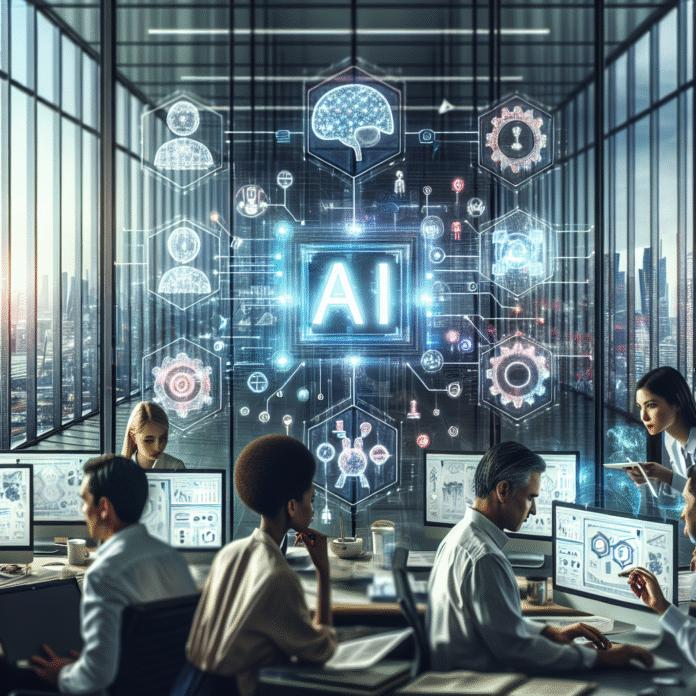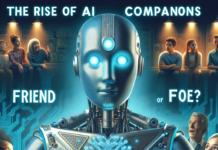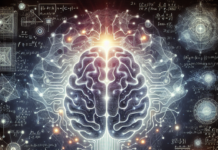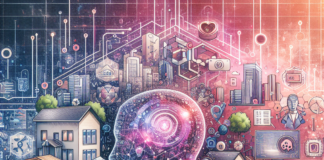The Future of Work: How AI is Transforming Careers Across Industries
As we stand at the crossroads of technological advancement and societal transformation, artificial intelligence (AI) emerges as a powerful force reshaping the landscape of work. The potential of AI to enhance productivity, streamline operations, and revolutionize job roles across various industries is not just a trend; it signifies a seismic shift in how we approach our careers and workplaces.
Understanding AI in the Workplace
AI encompasses a broad range of technologies, including machine learning, natural language processing, and robotics. These advancements are increasingly being integrated into daily operations, dramatically changing how tasks are performed. From automated customer service chatbots to sophisticated data analytics tools, AI is designed not to replace human labor but to augment it.
Enhancing Efficiency and Productivity
One of the primary advantages of AI is its ability to perform repetitive and mundane tasks with speed and accuracy. For example, in industries like finance, AI algorithms can analyze vast amounts of data to identify trends and make predictions, enabling finance professionals to focus on strategy rather than data entry. Similarly, in healthcare, machine learning tools assist in diagnosing diseases, allowing doctors to spend more time on patient care.
Reshaping Job Roles
While many fear that AI will lead to job losses, the reality is that it often leads to the creation of new roles. As routine tasks become automated, employees are freed to engage in more creative and strategic endeavors. Emerging fields like AI ethics, data analysis, and machine learning engineering are already seeing increased demand for skilled professionals.
For instance, a marketing professional may find themselves transitioning from traditional advertising to data-driven insights, utilizing AI tools to better understand consumer behavior. Such transformations are necessitating upskilling and reskilling, prompting businesses to invest in employee development programs.
Industry-Specific Transformations
Healthcare
AI is profoundly reshaping the healthcare industry by enabling predictive analytics and enhanced patient care. Natural language processing allows doctors to document patient interactions efficiently, while machine learning can anticipate patient needs before they arise. This trend not only improves patient outcomes but also alters the path for careers in healthcare administration, coding, and telemedicine.
Manufacturing
In manufacturing, smart factories fueled by AI and robotics are optimizing supply chains and production processes. Production workers may transition from manual tasks to roles managing sophisticated AI-driven machinery. This gradual evolution necessitates a workforce that is proficient in both traditional skills and advanced technological know-how.
Finance
The finance sector is undergoing a transformation with AI algorithms performing tasks previously handled by human analysts. Robo-advisors are now commonplace for investment management. Financial professionals need to adapt, evolving from purely analytical roles to ones that incorporate technology strategies and cybersecurity measures.
The Need for Adaptability and Lifelong Learning
In this shifting landscape, adaptability is crucial. Workers must embrace a mindset of continuous learning, seeking out opportunities to upskill and adapt to the evolving demands of their industries. Governments, educational institutions, and corporations are now focusing on offering training that emphasizes skills relevant to a tech-driven future.
Remote Work and AI
The increase in remote work spurred by the COVID-19 pandemic further illustrates AI’s role in the future of work. Collaboration tools, project management software, and AI-driven communication applications have transformed how teams interact. As more companies adopt hybrid work models, the importance of AI in facilitating collaboration and productivity will only grow.
Ethical Considerations and the Human Element
As AI becomes more ingrained in the workplace, ethical considerations gain prominence. Issues surrounding data privacy, surveillance, and algorithmic bias need careful attention. Organizations must ensure that AI applications are designed and implemented ethically, balancing technological advancement with human rights and dignity.
The Human-AI Collaboration
Ultimately, the future of work is not about one competing with the other but rather about humans and AI working together. Companies that successfully harness AI’s potential while fostering a supportive and inclusive workplace culture will lead the way. Human creativity, emotional intelligence, and ethical decision-making remain irreplaceable elements in any organization.
Conclusion
The future of work, shaped by AI, is characterized by continuous change and adaptation. While it offers unparalleled opportunities for career growth and transformation, it also challenges us to rethink traditional roles and responsibilities. As industries evolve, the conversation must shift toward creating inclusive environments that empower workers, ensuring a better workplace for all. By embracing this change, we can shape a future where human ingenuity and technological advancement work hand-in-hand, redefining the way we experience work.
More related articles- Artificial Intelligence is no longer just a technological buzzword—it’s a driving force reshaping the way we work, the skills we need, and the roles we pursue.







